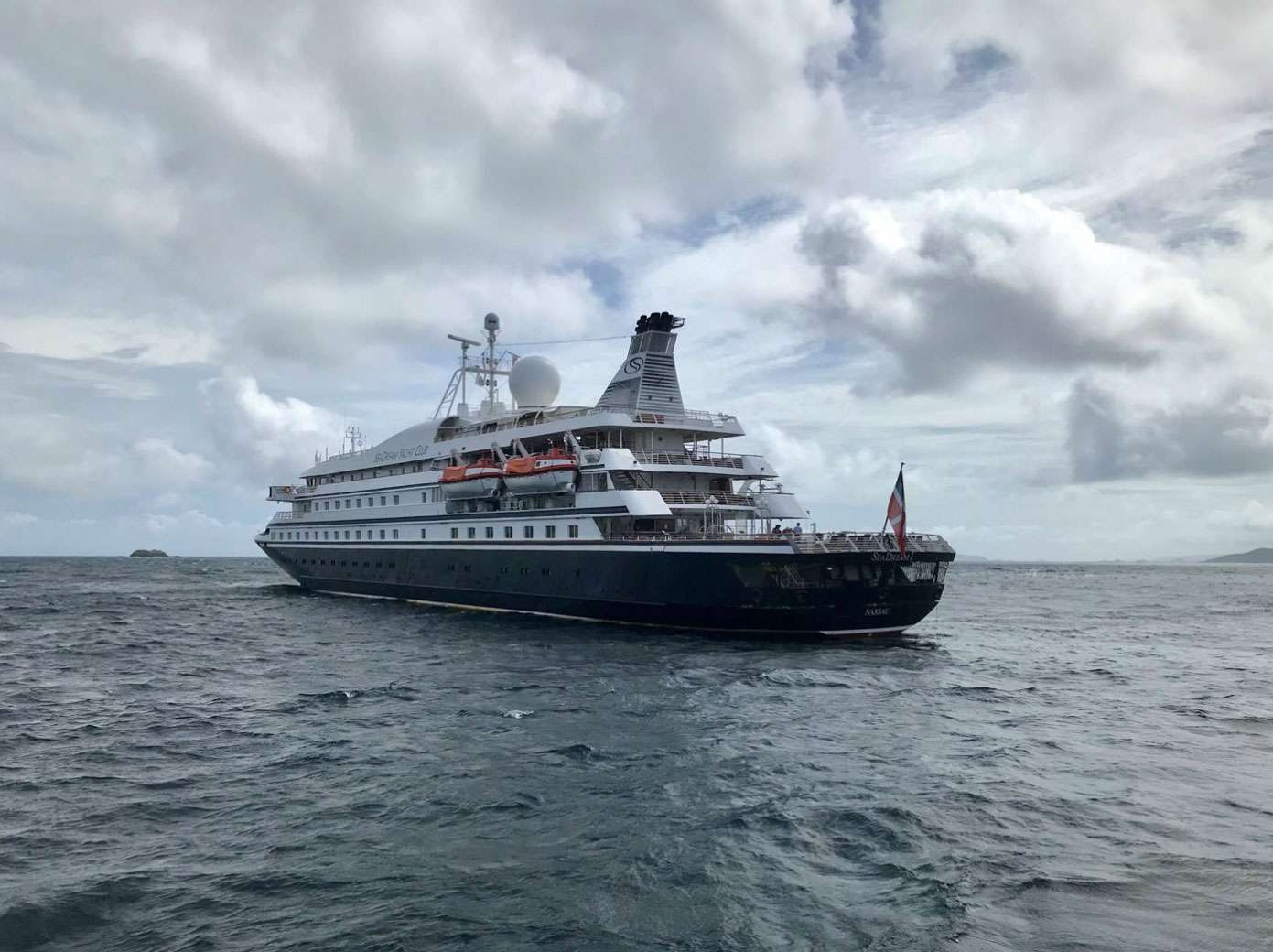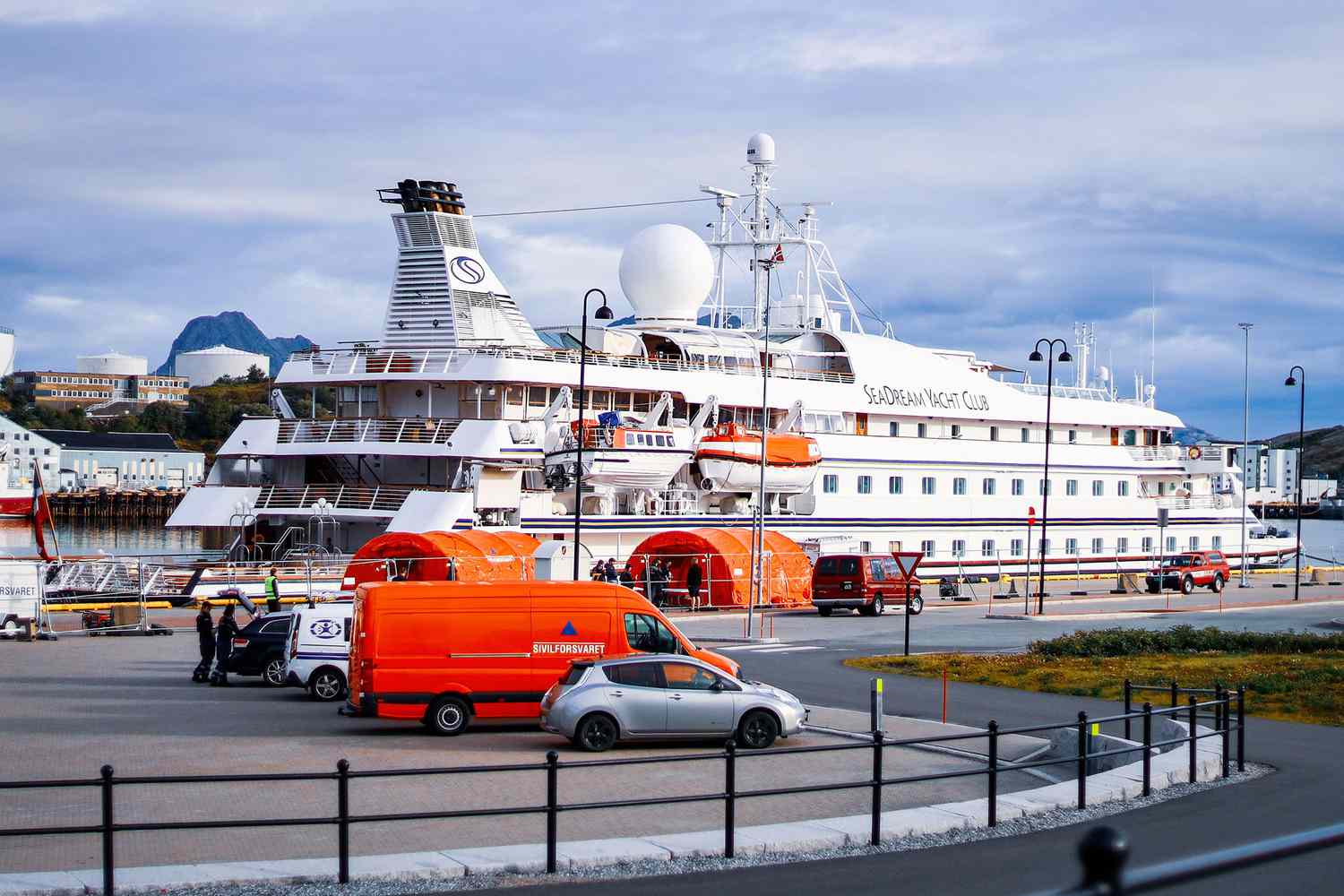The first cruise ship to set sail in the Caribbean since the beginning of the COVID-19 pandemic has reported that a passenger on board has tested positive for the virus, according to The Points Guy.
A reporter for the travel site, Gene Sloan, is aboard the SeaDream 1 and was meant to be documenting the new safety measures on the small vessel, which departed from Barbados on Saturday and is carrying 53 passengers and 66 crew.
Sloan reported that the boat's captain, Torbjorn Lund, made an announcement over the intercom midday on Wednesday explaining that a passenger had tested positive "on a preliminary basis." It's currently unclear what he means by "preliminary."
Sea Dream Yacht Club, which owns the ship, did not immediately reply to PEOPLE's request for clarification.
Lund reportedly said in his announcement that the crew was working under the assumption that they had at least one COVID patient on board. The passenger who tested positive had been feeling ill before the test, he said.
Sloan detailed that the captain asked all passengers and non-essential crew to immediately return to their cabins to isolate. The doctors on board then began systematically testing passengers using three rapid COVID testing machines. Everyone on the ship had already been tested several days before departing, the day of their departure, and again several days into the trip.
While the boat made several island stops already, passengers were only allowed to visit empty beaches and did not come into contact with locals as part of the effort to protect communities from potential infection.
SeaDream 1 is now heading back to the port from which it departed, where it will be met by medical professionals.
Cruise companies halted all sailings in the Caribbean last spring as the pandemic took hold in North America, individual countries enacted stringent travel restrictions and the U.S. Centers for Disease Control and Prevention (CDC) enacted a "no-sail order."
"This is a blow to the cruise industry's efforts to restart operations in the Caribbean," Sloan told PEOPLE. "SeaDream's return to cruising in the Caribbean was a watershed moment for the industry, and many were hoping it would go smoothly."
The CDC first issued a no-sail order on March 14 and was intended to stay in place for 30 days. At the time, several cruise ships across the world had become sources of major coronavirus outbreaks.
One ship, the Grand Princess, was quarantined off San Francisco after 21 people on board tested positive for the virus in March. That ship eventually docked in the port of Oakland and those on board quarantined on land.
Another, the Holland America, reported four dead and 233 ill on two of its ships heading for Ft. Lauderdale in March after being turned away from ports in South America.
In October, the CDC announced it would lift its no-sail order as of November 1 after 8 months, with a set of strict new rules for cruise operators.
The agency is also requiring all ships that pass through U.S. waters and can carry more than 250 passengers to run mock voyages with volunteer passengers and crew on board in order to test health and safety protocol. (The SeaDream 1 only carries 112.)
"This framework provides a pathway to resume safe and responsible sailing. It will mitigate the risk of COVID-19 outbreaks on ships and prevent passengers and crew from seeding outbreaks at ports and in the communities where they live," CDC Director Robert R. Redfield, M.D said in a press release. "CDC and the cruise industry have a shared goal to protect crew, passengers, and communities and will continue to work together to ensure that all necessary public health procedures are in place before cruise ships begin sailing with passengers."
"The $150 billion cruise industry has been working around-the-clock for months to find safe ways to restart sailings," says Sloan. "This small-ship voyage was being closely watched by other cruise lines, cruise fans and the industry's regulators, and — depending on what happens — this could be yet another disappointing setback for the industry and the millions of vacationers who are looking to return to the sea."
As information about the coronavirus pandemic rapidly changes, PEOPLE is committed to providing the most recent data in our coverage. Some of the information in this story may have changed after publication. For the latest on COVID-19, readers are encouraged to use online resources from the WHO and local public health departments. PEOPLE has partnered with GoFundMe to raise money for the COVID-19 Relief Fund, a GoFundMe.org fundraiser to support everything from frontline responders to families in need, as well as organizations helping communities. For more information or to donate, click here.
Source: Read Full Article

